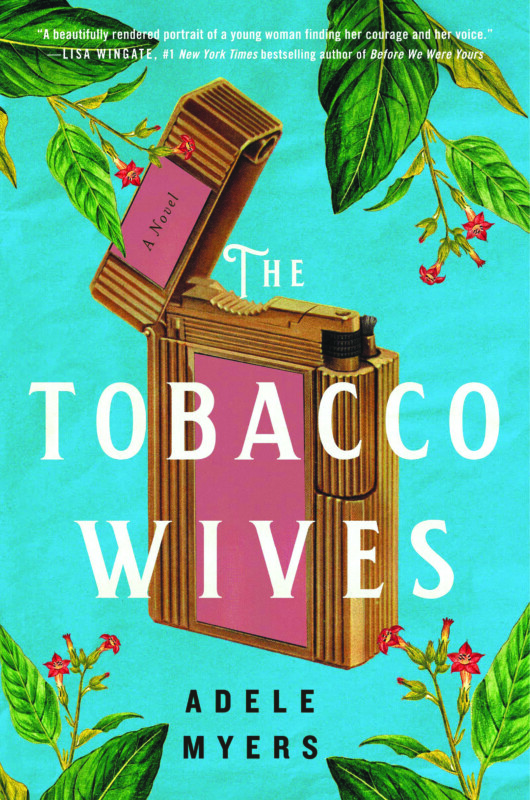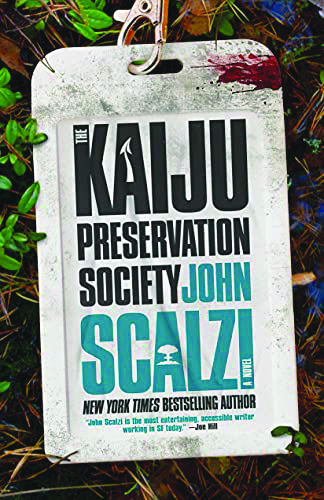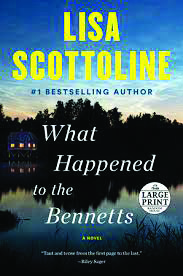The Homewreckers, by Mary Kay Andrews (St. Martin’s Press, 437 pages)
Mary Kay Andrews is, by many accounts, “queen of the beach read,” although Elin Hilderbrand would probably like a word about that. So would Emily Henry, the Ohio author who published a book called Beach Read in 2020.
It’s a little early for beach reading in New England, but Andrews’ latest, The Homewreckers, is a doorstop of a novel at 437 pages, so if you start now, you might finish by Labor Day. Hard-working readers can get through it quicker, but not without pain.
It’s not that Andrews isn’t an expert wordsmith; she’s written 30 books in 30 years and so has well more than 10,000 hours invested in her craft. It’s just that the story isn’t interesting enough to hold our attention for that long. As either Blaise Pascal or Mark Twain said (depending on which book of quotations you consult), they would have written shorter if they’d had more time. Andrews must have written The Homewreckers very quickly.
The premise is decent enough: A Hollywood producer visiting the charming Deep South town of Savannah, Georgia, encounters Hattie Kavanaugh, a young woman who works with her father-in-law restoring homes. In a bit of slapstick comedy that serves little purpose other than setting up a scene for a TV movie, the producer literally falls through a rotting kitchen floor on top of her.
Although Hattie is a widow who’s still not fully recovered from her husband’s death in an accident, she operates in the high rungs of Maslow’s tiers of self-actualization and is not impressed by the credentials of the man who fell on her while she was crawling around under the house inspecting its plumbing. She merely observes to her friend and co-contractor that Mo Lopez appears to have all his teeth before shooing him away.
Mo, however, has not only teeth but vision. He works for a TV network that specializes in home fix-up reality shows; his most recent was Killer Garages and he needs a new show. He sees past Hattie’s grungy work boots and dirty coveralls and sees a TV star. Also, in case we need to know on page 17 where this is going, he sees “hazel eyes and full lips,” someone who “had that fresh-faced girl-next-door-thing going on, her hair in a careless pony tail. Slender, but curvy in the right places.”
He — and I quote — “couldn’t manage to get Hannie Kavanaugh off his mind.”
At this point, you might be tempted to toss The Homewreckers and look for a mountain read instead, but give the queen of beach reads her due. There are challenges to be overcome here, not least of which is that Hattie Kavanaugh has no interest in being a star of a reality show. She does need money, however, and it doesn’t take long for Mo to convince Hattie to be part of a show called “Saving Savannah” — pitched to her as a sort of love letter to her work. The show would follow her as she takes a deteriorating home with good bones and loves it back to life. Hattie thinks hopefully that something like this might inspire other people to do the same.
In her first reel of video, she says, with sweet sincerity, “I’m Hattie Kavanagh. And I’m saving Savannah. One old house at a time.”
Problem is, the cynical executive back in L.A. doesn’t see anyone watching that sappy drivel. So she renames the show and revamps the concept. “Homewreckers” will be “the space where a dating show meets a flip show.” She sends in a sexy, big-city designer to “help” Hattie, in hopes that there will be real-life sizzle between them, to add to the drama.
Hattie, of course, doesn’t know this. Mo, who knows it, doesn’t like it. But Hattie has signed the contract, and off to the races they go.
This seems enough drama for a beach read, but there’s also a murder mystery entwined, which is kind of distasteful, given the lighthearted fare that surrounds it. “Love, murder and faulty wiring” is the tagline on the cover. Three of these things are not like the others. “Let’s throw in the murder of a 25-year-old mother” to add complexity to a beach read is a painful stretch.
Ultimately, the problem with The Homewreckers is not the bloated verbiage, or the predictable ending, or the never-ending yapping about Savannah, but that I didn’t care about the characters to hang with them as long as was required of me. This was surprising because Hattie is not a one-dimensional character; she is still mourning her husband and has a fraught relationship with her felonious dad; there are layers to this story, and genuine humor. Hattie’s father-in-law is named Tug and has a penchant for exclaiming “Jesus, Mary and Fred.” And Andrews can throw out some good lines as when she has Mo tell Hattie she smells like rainbows and joint compound.
Granted, I’m a person who thinks a beach read is a magazine — something easy to hold and easy to discard when it gets wet and smells like beer. So maybe you’ll love it. But more likely, Elin Hilderbrand has nothing to fear. B-
Book Notes
In this age of body positivity, we aren’t supposed to talk about beach bodies, except in the concept of the meme that says “How to have a beach body: 1. Have a body. 2. Go to the beach.”
True that, but it’s also true that some of us might be a little more comfortable at the beach minus a few pounds. If you are in that camp, please know that everything old is new again when it comes to diet books. In other words, old diet books never die, they just get reissued.
Behold the “New 2022 Edition!” of The South Beach Diet, introduced in 2003 by Florida cardiologist Andrew Agatston. Yep, he’s still around and runs the Agatston Center for Preventive Medicine, which these days promotes intermittent fasting. The South Beach Diet has been so popular for so long that it has its own category on Amazon.
Dr. Agatston did issue a new paperback version of The South Beach Diet in 2020 (Rodale, 336 pages). But the hottest-selling diet and fitness book right now is The Whole Body Reset (Simon & Schuster, 400 pages) by Stephen Perrine. It may or may not be a selling point that Perrine is editor of the AARP magazine, which explains why the book is targeted at people in midlife or beyond. Like South Beach, it promises a flatter belly and overall improved health with a focus on protein with fewer carbs.
Another new health book that promises weight loss is Glucose Revolution (Simon & Schuster, 304 pages) by Jessie Inchauspe. She’s a social media influencer (@Glucosegoddess on Instagram) but, interestingly, has a bachelor’s degree in mathematics and a master’s in biochemistry and comes to the subject well-educated. Worth a look.
Finally, I’m interested to read the provocatively titled Drop Acid (Little, Brown Spark, 336 pages), the latest offering from Dr. David Perlmutter, the controversial physician-author who wrote 2013’s Grain Brain and several follow-up books that posited that grains and sugar are the brain’s “silent killer.” In this book, the villain is uric acid, which is a waste product that circulates in our blood. Perlmutter argues that elevated levels of uric acid, caused in part by consuming too much fructose, are contributing to obesity, cardiovascular disease, cognitive decline and other ills.
At this rate, there will be nothing left for us to consume but water, which naturally leads to the best title ever for a health book: You’re Not Sick, You’re Thirsty. For all I know, it could be malarky, but the title is good for a smile. It’s an oldie, from 2003; Warner, 304 pages.
Book Events
Author events
• ANDREW BIGGIO Author presents The Rifle. Tues., May 10, 7 to 8 p.m. The Wright Museum of WWII (77 Center St., Wolfeboro). Seating is limited, and reservations are required. Admission costs $5 for museum members and $10 for non-members. Call 569-1212 or visit wrightmuseum.org.
• DONALD ANTRIM Author presents One Friday in April. Gibson’s Bookstore, 45 S. Main St., Concord. Tues., May 17, 6:30 p.m. Visit gibsonsbookstore.com or call 224-0562.
• R.W.W. GREENE Author presents Mercury Rising. Bookery, 844 Elm St., Manchester. Fri., May 20, 5:30 p.m. Visit bookerymht.com or call 836-6600.
• TAMMY SOLLENBERGER Author presents The One Inside: 30 Days to Your Authentic Self. Bookery, 844 Elm St., Manchester. Wed., June 1, 6 p.m. Visit bookerymht.com or call 836-6600.
• PAUL BROGAN Author presents A Sprinkling of Stardust Over the Outhouse. Gibson’s Bookstore, 45 S. Main St., Concord. Thurs., June 30, 6:30 p.m. Visit gibsonsbookstore.com or call 224-0562.
• CASEY SHERMAN Author presents Helltown. Bookery, 844 Elm St., Manchester. Sun., Aug. 14, 1:30 p.m. Visit bookerymht.com or call 836-6600.
Book sales
• SPRING BOOK SALE Bag sale features thousands of hardbacks and paperbacks including fiction, nonfiction, mystery and a variety of children’s books, plus a large selection of DVDs, CDs and audio books. Baked goods will also be sold. Brookline Public Library, 4 Main St., Brookline. Sat., May 14, and Sun., May 15, from 10 a.m. to 2 p.m.
Poetry
• DOWN CELLAR POETRY SALON Poetry event series presented by the Poetry Society of New Hampshire. Monthly. First Sunday. Visit poetrysocietynh.wordpress.com.
Writers groups
• MERRIMACK VALLEY WRITERS’ GROUP All published and unpublished local writers who are interested in sharing their work with other writers and giving and receiving constructive feedback are invited to join. The group meets regularly Email pembrokenhtownlibrary@gmail.com.





